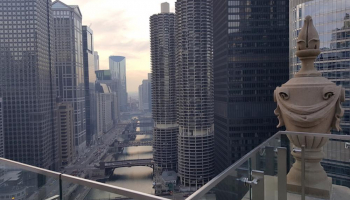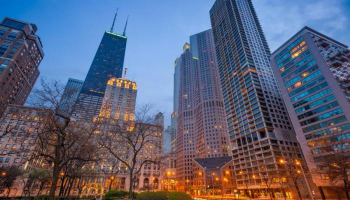
The city of Chicago, IL has long been eyeing a massive Chicago downtown casino that, proponents say, will bring massive amounts of tourism dollars and tax revenue to America’s 3rd biggest city. However, even though this dream is becoming closer to realizing than ever, there are still seemingly insurmountable problems that remain on the path to getting a casino built in downtown Chicago.
A casino in downtown Chicago, like the one that was recently approved by the state of Illinois lawmakers, would be on par with any Las Vegas casino in both size and gambling opportunities.
The city of Chicago has been approved by state officials for an incredible 4,000 gambling positions. By comparison, many of the most famous Las Vegas casino hotels have around half that number. And, while some of those seats could be allocated to the Chicago-area airports and other locations, the downtown casino would still be massive by any measure.
Delays in Planning for a Chicago Downtown Casino
One of the most fundamental problems currently with a downtown Chicago casino is area lawmakers do not know exactly where it would be located.
There was a feasibility study done in August, although that study looked at a handful of sites outside of the downtown area.
They ended up recommending a site closer to the heart of Chicago.
Two locations in the city that are often mentioned as plausible locations are the James R. Thompson Center, a taxpayer-funded, government-owned building in the Loop district of Chicago or the McCormick Place building, currently the largest convention center in North America.
The Tax Issue tied to a Chicago Casino
The biggest hurdle the downtown casino plan faces is the proposed tax structure.
Even though the revenue estimates have been incredible, with the proposed taxes on the casino, it would be hard for any operator to make much of a profit.
The new law that allows gambling in the city also has the highest tax and fee structure in the country with an effective tax rate which could reach as high as 72%.
This includes a 33% tax on gross casino receipts. This tax, which applies only to the Chicago casino and not others in the state, would mean that any operator would make just pennies on the dollar which is not the case in all other casinos.
Even though lawmakers are scrambling to address this issue, they have run out of time for 2019. They were working on lowering some of these taxes and fees but were not able to schedule a vote on the new percentages before breaking for the end of the year recess.
What a New Downtown Chicago Casino Will Bring to Taxpayers
The downtown casino would make Chicago the biggest American city to be home to a casino.
While there are plenty of detractors to the plan, many people believe the casino will be a huge positive for both the city and state because of the economic growth and tax revenue it will bring in.
Although there have been varying estimates, most analysts agree that a downtown Chicago casino would out-draw and out-earn even the biggest and best casinos in the state of Illinois.
The highest-grossing casino in the state makes about $400 million-plus a year and experts believe the Chicago casino could more than double that number in time.
The downtown Chicago casino project could be another big piece of the current economic redevelopment going on in the state of Illinois right now. Projects like the casino and the $45 billion infrastructure plan that was recently signed by Illinois governor J.B. Pritzker in June are seen by many as major steps in stimulating a state economy that has been mired in a slump, ranking in the bottom half of U.S. state economies over the last few years.
What the Detractors Say
There are also plenty of people and groups who do not support a casino coming into the heart of Chicago.
Many of those people object because of the negative social cost a casino can bring to an area. Groups like the Illinois Church Action on Alcohol & Addiction Problems have opposed it on the grounds that it promotes gambling addiction and other social issues.
Others have an ethical problem with the fact that much of the tax dollars that come from a business that they do not see as reputable would go toward funding children’s education.
Finally, many in the Illinois gambling industry object because they say it could lead to oversaturation of the gaming market and take away from some of the other, very profitable casinos around Illinois.
Mayor Under Pressure
Current Chicago mayor Lori Lightfoot is not the first Chicago leader to try and get this type of establishment off the ground without success.
Famously, Mayor Richard M. Daley tried unsuccessfully in the early 1990s to build a casino complex with family-friendly entertainment. In the early 2000s, Mayor Rahm Emanuel tried to get one built to help with the city’s financial problems at the time.
Lightfoot, like her predecessors, believes the casino would enhance a local neighborhood that is currently in tough economic straights and give it a brighter future. However, the mayor, who is still in her first year in office, has struggled to gain the full support she needs in order to get all the measures the casino needs to be passed.
The Path to a Downtown Chicago Casino
The project is not dead by any means but, at best, it will be currently delayed until the new year. And, while many of the major hurdles have been cleared, such as an agreement in principle to lower the tax rate and make the casino more economically viable for whoever owns it, the few roadblocks that remain are incredibly problematic.
These challenges may ultimately prove too big to be overcome by the city of Chicago. In 2020, the relationships between the city of Chicago, the state of Illinois, and whoever they are able to convince to come in and develop and run the casino, are all relationships worth keeping an eye on.









